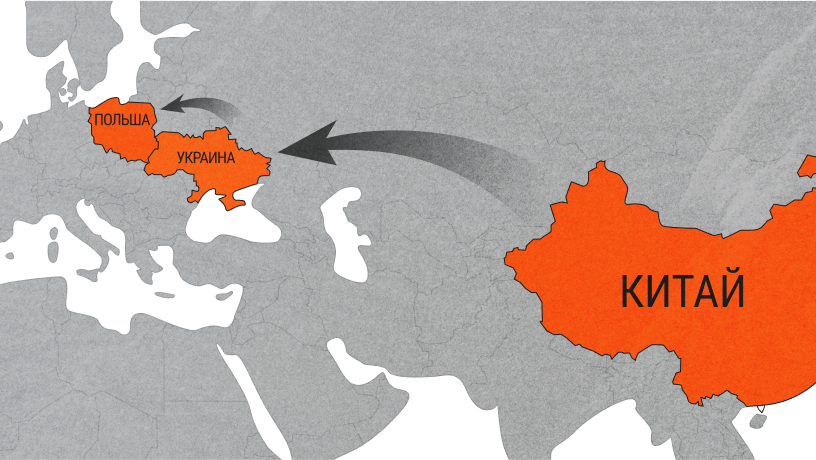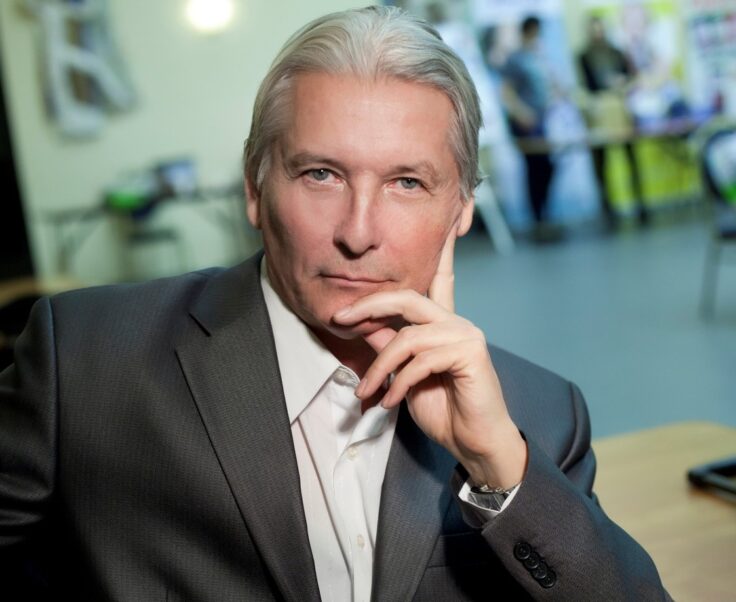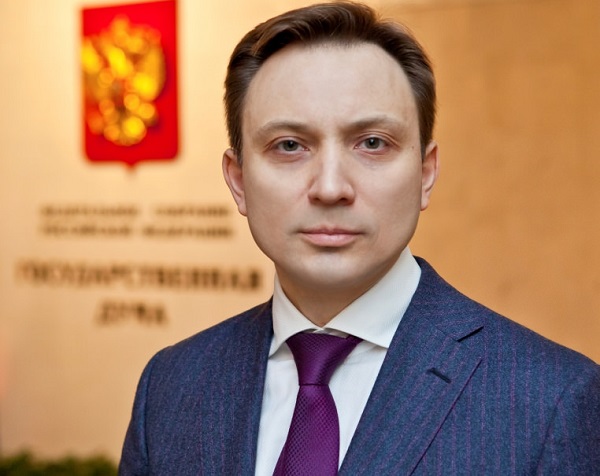
T-invariant, co-founder of Dissernet Andrei Rostovtsev, and community project coordinator Larisa Melikhova are launching “Plagiarism Navigator”. Through select cases of international academic plagiarism, the project reveals how imitation of scholarly activity operates on a planetary scale. Specially trained NLP language models, developed in collaboration with linguists from the Universities of Helsinki and Oslo, are used to tackle this issue. The first installment tells the story of a Chinese scholar who defended a dissertation in Kharkiv—a work essentially composed of Ukrainian translations of two Russian-language theses.
Nothing has damaged Russian science more than the Russian state itself: the repression of scientists, severed ties with Western colleagues, and privileges for university administrators who endorsed the “Special Military Operation” have all had a devastating effect. Unsurprisingly, calls to isolate Russia behind a wall and let it decay—starting with its science—are growing louder. Who cares about plagiarism in an aggressor state?
We believe this stance is misguided. Isolating Russian science is no longer feasible. Moreover, the fraudulent practices of pseudo-scientific hackwork, honed in the USSR, have successfully migrated to post-Soviet states, while the vast corpus of Russian-language texts remains a nearly inexhaustible source for translation-based plagiarism. The walls of this reservoir—already porous—have now fully dissolved with the advent of artificial intelligence. Today, Russian texts, translated into various languages, march triumphantly across the globe, effortlessly crossing borders and barriers.
Yet, new technological capabilities also work in the opposite direction: what once lurked in the shadows can now be exposed. Each new case of translation plagiarism reveals a sprawling network spanning countries and continents, through which former Russian texts circulate. To study this network, T-invariant, Andrei Rostovtsev, and Larisa Melikhova are launching “Plagiarism Navigator”.
Today, we examine how Chinese scholar Jingyi Wang seamlessly employs the worst practices still uniting the post-Soviet academic space.
2017: Jingyi Wang arrives in Ukraine and enrolls as a postgraduate student at Skovoroda Kharkiv National Pedagogical University (Department of General Pedagogy and Higher Education Pedagogy).
2020: Wang takes a fragment of a 2005 Russian-language dissertation (Moscow, Sholokhov Moscow State University for the Humanities), translates it into English—replacing citations of Russian authors with references to Chinese scholars—and publishes it as a research article in a Polish academic journal (Nicolaus Copernicus University, Toruń). The source dissertation’s author is Arkady Filippov, a renowned music pedagogue and associate professor at Saratov State University.

2021: Wang defends her Candidate of Pedagogical Sciences (PhD in Pedagogic Science) dissertation in Kharkiv, titled “Forming Prospective Musical Art Teachers’ Readiness for Vocal Pedagogical Activity at Higher Educational Establishments of the People’s Republic of China.” The dissertation is a compilation of two Russian-language sources translated into Ukrainian:
1. The same 2005 dissertation by Arkady Filippov, which was plagiarized in her earlier publication.
2. A 2015 dissertation by a Chinese author defended in Russia (Volgograd).
Wang’s text liberally borrows key concepts developed by Russian musicologists and educators, but their names are systematically replaced with Chinese ones (e.g., Han Zhimin, Hu Shihong, Qian Jianming, etc.). In translating the work of the prominent Saratov music pedagogue, Wang transformed Moscow’s Central Music School of the Tchaikovsky Conservatory into Kyiv’s Mykola Lysenko Specialized Music Boarding School and the famed Gnesin College of Music into Kharkiv Conservatory’s Specialized Music School.
2022: Wang returns to China and becomes a professor at the Music College of Zhejiang Normal University (Jinhua)—one of China’s most prestigious pedagogical institutions.
2022: At a Kharkiv conference, Wang presents as a scholar from Zhejiang Provincial Pedagogical University (PRC), delivering a report on “Music Teacher Training Technology in Distance Learning: The Chinese Experience.”
Plagiarized Russian dissertations typically feature two types of alterations: updating dates to “refresh” old texts and swapping research subjects (e.g., replacing “meat” with “chocolate,” as in State Duma deputy Igor Igoshin’s dissertation).

In the Ukrainian-Chinese-Russian dissertation of Jingyi Wang, the same types of substitutions were found – but with distinctive features. When copying from A.V. Filippov’s 2005 dissertation, the task of updating information (after all, 17 years had passed!) was solved simultaneously with the “Sinification” of the Russian text: references to Russian scholars were systematically replaced with more recent citations of Chinese researchers:
– “G.K. Parinova writes…” → “Fang Guangyu notes…”
– “Shvyrev argues…” → “Philosopher-musician Li Jing argues…”
– “According to studies of A.V. Brushlinsky, M.I. Volovikova…” → “According to studies of a Chinese scholar Yang Hao…”
The second source material—a dissertation by a Chinese author defended in Russian—compares the pedagogical systems of Russia and China. However, the text needed adaptation to fit Ukrainian-Chinese relations, which fundamentally altered the nature of the substitutions:
– “In China, such ideas were borrowed from Russian and European vocal schools.” → “In China, such ideas originated from Asian and European vocal schools.”
– “The Russian system for training vocal arts specialists in higher music education is characterized by…” → “The Ukrainian system…”
– “Russian music universities traditionally maintain exceptionally strong pedagogical components.” → “Ukrainian music universities…”
– “The contemporary system of professional vocal education in Russia and China incorporates…”
→ “…Ukraine and China…”
A Chinese scholar publishing plagiarized Russian research in Poland while defending a dissertation in Kharkiv—where “Russia” becomes “Ukraine” and Russian authors morph into Chinese ones—is this not the epitome of academic globalization? Regardless, the authors and T-invariant plan to formally petition the Polish journal’s editors to retract Wang’s article.